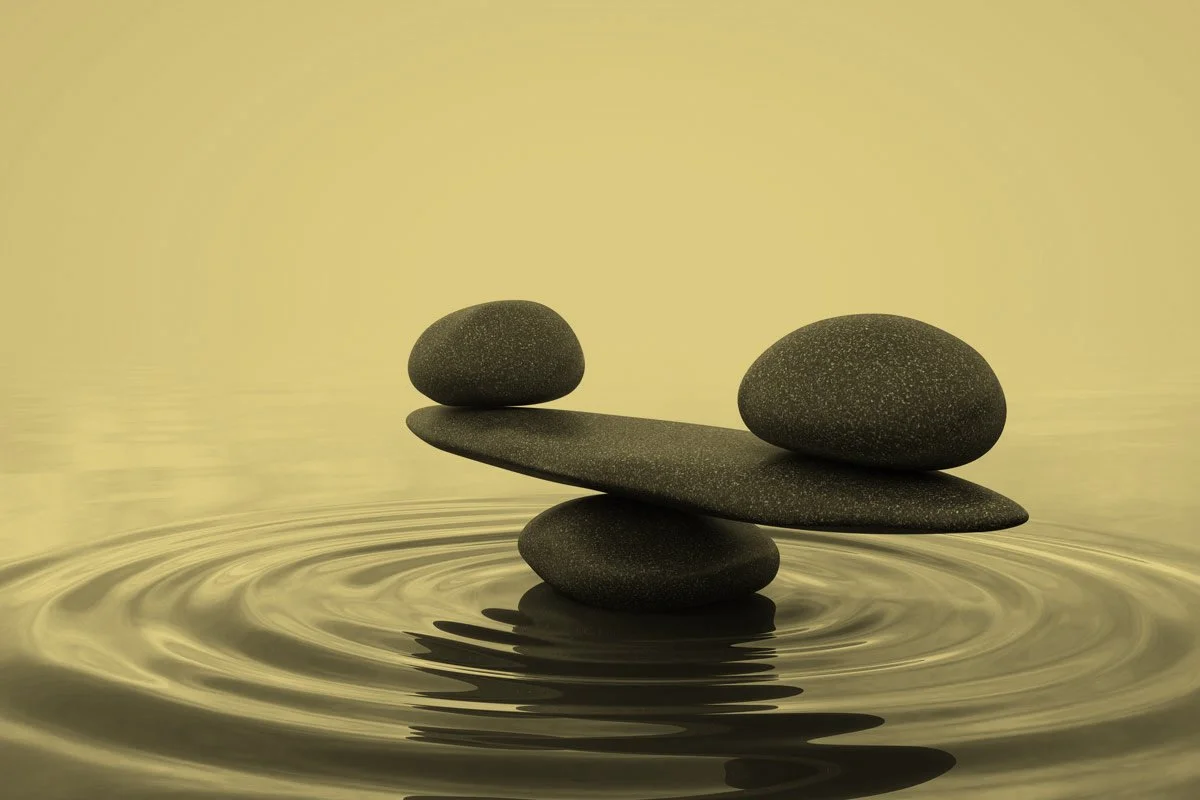If you push yourself to the edge, you might just fall over...
"Better learn balance. Balance is key". Mr Miyagi
Psychologists say a certain amount of stress is necessary, and even good for you.
Trouble is, so many take that concept to a whole new level – adding more and more stress to their lives until they reach the edge and, in some cases, fall right over it.
I get that it is human nature to strive to achieve, but there is a point at which the striving takes on a decidedly unhealthy flavour…
I was thinking about this as I prepared to present at a conference last week about women in leadership. The presentation was on my research into the barriers that women face reaching senior leadership positions in the public service.
One of the themes that emerged from my study was the public service culture of putting in long hours on the job in order to be seen as contributing and to increase chances of promotion.
The irony is that working longer hours does not equate to increased productivity. In fact, New Zealanders work 15 percent longer than the OECD average to produce 20 percent less output per person – ranking us in the lower third of all OECD countries (source).
You have to wonder, then, why so many organisations continue to pressure their employees to put in such long hours. Seems like both individuals and organisations need to get a whole lot smarter about this.
For individuals stuck on the long-hours treadmill, maybe it’s time to design the kind of life you really want to be living. (See previous post about operating on auto-pilot).
As author Nigel Marsh says, “If you don’t design your life, then someone else may just design it for you, and you may not like their idea of balance”.
For organisations (and their people managers), perhaps it’s time to build the kind of organisational culture that supports more flexibile and sensible work practices.
By that I don’t mean simply transferring the long hours from the work place to the home by providing technology for remote access, as some interviewees talked about in my research – “We’ve tried to be more flexible … We don’t want to lose people. It’s not unusual for people to be here at 7 o'clock at night, and if you’re not working late, you’re not seen as contributing. But now people can take their work home…”.
Ridiculously long hours doesn’t suit anyone – men or women. But as long as the workplace culture demands it, women will be disadvantaged.
“Especially in the context of knowledge work, it can be hard to assess individuals’ relative contributions, and managers may resort to “hours spent at work” as the prime indicator of someone’s worth to the organization. To the extent an organization can shift the focus to objective measures of productivity, women with family demands on their time but highly productive work habits will receive the rewards and encouragement they deserve.” (From Women and the Labyrinth of Leadership).
It was reassuring to hear other speakers at the Public Sector Women in Leadership Summit last week talk about the importance of not trying to be hero leaders, and to have more balanced lives.
But if an organsiation's culture (through its people managers) does not actively support people to have balanced lives, this can be easier said than done.
Bearing in mind that what we do communicates more powerful messages than what we say, to actively support a healthy balance managers need to start with themselves and role model sensible work habits. Staff are more likely, then, to take up flexible work options without fear of negative consequences if they do so.
And it’s a no-brainer for organisations – a more balanced life for staff leads to increased employee satisfaction and increased productivity.
The opportunity
If you are a manager of people, how are you doing on this front? Are you pushing your people to the extreme limits of their capabilities and capacity to cope? How will you feel if they fall right over the edge? And how sensible are your own time sheets looking?
The opportunity is to ask yourself these questions and, hopefully, in time to make positive changes.
As Mr Miyagi said: "Better learn balance. Balance is key".
Lucy Sanderson-Gammon, MBA, is director of Luminous Consulting Limited. She provides management and communications consultancy and short term contracting services, as well as business and career coaching, and manager communications training.
This article is also available on LinkedIn.

